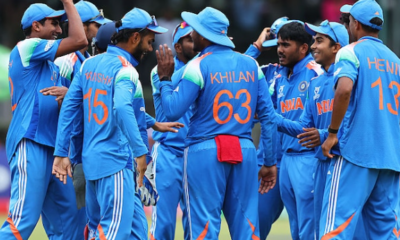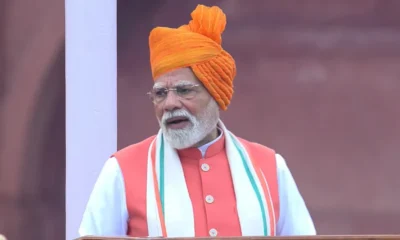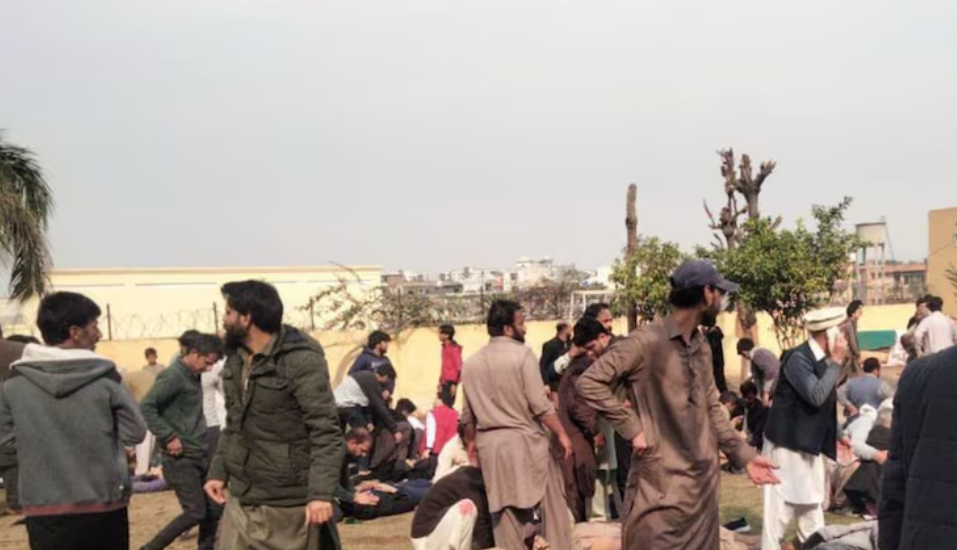[vc_row][vc_column][vc_column_text]Ties with Washington were not cordial, says foreign minister Khwaja Asif
Pakistan’s foreign minister Khawaja Asif has, on Wednesday, announced that Islamabad has made clear to the US that it will not accept India as a “policeman” in the region. He has also conceded that relations between Islamabad and Washington were not cordial and in fact US administration was hiding its failures by blaming Pakistan on fight against terror.
According to The News International, Khwaja Asif was closing debate among the senators about US Secretary of State Rex Tillerson’s recent visit to Pakistan. He has expressed his displeasure on Trump administration’s policy tilt towards India. He said that Pakistan has made crystal clear to the US that its wish to appoint India as a ‘policeman’ in the region was in no way acceptable.
Asif was quite vocal in criticising US for hiding its failures. He said, “when the US holds Pakistan responsible, it, in fact, tries to brush its own defeat under the carpet”.
Pakistan’s top diplomat said, “We are engaged in talks with the US for bringing peace in Afghanistan. Relations between the two countries will be back on track if the US accepts our demands and any attempt to make us scapegoat to hide its own failure is not acceptable.”
He equivocally acknowledged US interference in Islamabad’s decision making during earlier governments. He said that protecting 100 percent interests of Pakistan would be the hallmark of the government policies and “there would be no element of tepidness, as was the case in the past.”
Asif said that Pakistan was ready to play its due role in restoration of peace in Afghanistan through the platform of the Shanghai Cooperation Organisation (SCO). During the debate senators criticised US President Donald Trump for his new South Asia policy.
Describing Islamabad’s response to US pressure for “doing more” against terrorists, Asif said, “We had told Tillerson that we will take action against militant outfits if we are given credible intelligence by the US as mere rhetoric of doing more is not going to work.”
Asif suggested US administration for not devising Afghanistan policy based on recommendations from retired military officials. He said, “If America frames its policy free from the influence of these retired military generals who were defeated in Afghanistan, it will be much more successful and effective. When they make Pakistan the scapegoat, they are in fact covering their own failures in Afghanistan.”
Asif assured the senators that their concerns will be given due consideration while devising foreign policy. He said, “At present, the foreign policy is discussed in the National Security Committee (NSC) meeting headed by the prime minister where both civil and military leaderships give their input and the days when foreign policy was used to be framed by a single individual are gone.”
Meanwhile, Dawn correspondent Anwar Iqbal reports from Washington that US has shared a list of 20 terrorist groups operating in Pakistan and Afghanistan. He claimed that unnamed diplomatic sources have rejected the suggestion as incorrect that Rex Tillerson handed over a list of 75 terrorists to Pakistani officials.
US Secretary of State Rex Tillerson told Senate Foreign Relations Committee on Monday that Pakistan was willing to target terrorists if provided specific information and Washington plans to give Islamabad an opportunity to do so.
The report further said that the list of 20 terrorist groups includes three types of groups: those indulged in attacks into Afghanistan, those who target attacks in Pakistan and the groups focussed on Kashmir.
The report further says, “Harakatul Mujahideen is a Pakistan-based militant group operating primarily in Kashmir. The US says that group had links to Osama bin Laden and Al Qaeda as well.”
The daily also says, “Jaish-e-Mohammed operates mainly in Kashmir and the liberation of the Indian occupied Kashmir is its declared objective.”
The US has identified Lashkar-e-Taiba, founded by Hafiz Saeed in 1987, as one of the largest and most active terrorist organisations in South Asia. This group is also focussed on Kashmir and it was involved in the 2001 parliament attack in New Delhi and 2008 Mumbai terror attacks.
Earlier in September, BRICS leaders, at the end of their summit held in China, had named Pakistan based terrorist outfits like Lashkar-e-Taiba and Jaish-e-Mohammed among groups responsible for committing, organising or supporting terrorist acts.[/vc_column_text][/vc_column][/vc_row]


 Latest world news14 hours ago
Latest world news14 hours ago
 India News15 hours ago
India News15 hours ago
 India News14 hours ago
India News14 hours ago
 Latest world news8 hours ago
Latest world news8 hours ago
 India News9 hours ago
India News9 hours ago
 Cricket news9 hours ago
Cricket news9 hours ago
 Latest world news4 hours ago
Latest world news4 hours ago
 Cricket news3 hours ago
Cricket news3 hours ago














